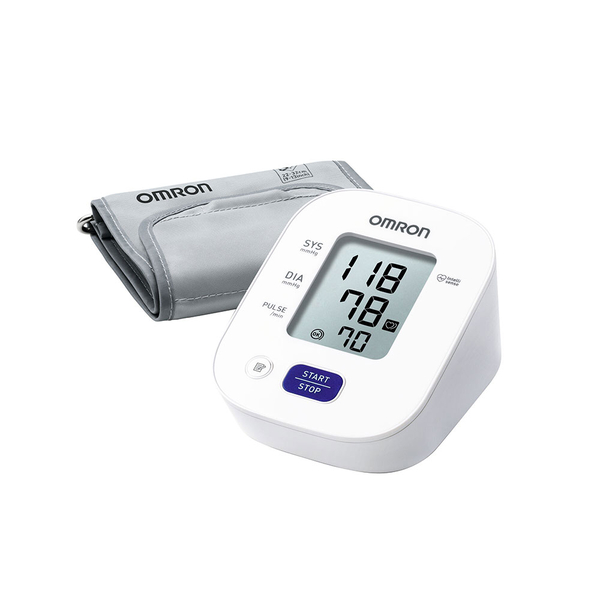As a vital sign, blood pressure is a key indicator of overall health. Blood pressure refers to the force of blood pushing against the walls of arteries as the heart pumps it around the body. The higher the pressure, the harder the heart has to work to circulate the blood, and the more strain is placed on the arteries. High blood pressure, or hypertension, is a leading risk factor for heart disease, stroke, and kidney disease, among other health problems. In this article, we will explore what blood pressure is, why it matters, and what steps you can take to maintain healthy blood pressure levels.
Understanding Blood Pressure
Blood pressure is measured using two numbers: systolic and diastolic. Systolic pressure refers to the force of blood pushing against arterial walls when the heart beats or contracts. Diastolic pressure is the force of blood against arterial walls when the heart is at rest or between beats. Blood pressure is measured in millimeters of mercury (mmHg), and the systolic and diastolic pressures are expressed as two numbers, one written over the other, such as 120/80 mmHg.
Blood pressure can vary throughout the day and is affected by many factors, including physical activity, stress, and diet. However, consistently high blood pressure, or hypertension, is a cause for concern. Hypertension is defined as having a systolic pressure of 130 mmHg or higher, or a diastolic pressure of 80 mmHg or higher. Hypertension is a significant risk factor for heart disease, stroke, and kidney disease, among other health problems.
Low blood pressure, or hypotension, is less common but can also be a cause for concern. Hypotension is defined as having a systolic pressure of less than 90 mmHg or a diastolic pressure of less than 60 mmHg. Symptoms of hypotension can include dizziness, lightheadedness, and fainting.
Why Blood Pressure Matters
Maintaining healthy blood pressure levels is essential for overall health and well-being. High blood pressure can damage arterial walls, leading to a buildup of plaque and an increased risk of heart disease and stroke. High blood pressure can also damage the kidneys, eyes, and other organs.
Low blood pressure can also be problematic, especially if it is accompanied by symptoms such as dizziness or fainting. In some cases, hypotension can be a sign of an underlying health problem, such as anemia, dehydration, or heart disease.
Steps for Maintaining Healthy Blood Pressure Levels
There are many steps you can take to maintain healthy blood pressure levels. These include:
- Eat a Healthy Diet: Eating a diet that is rich in fruits, vegetables, whole grains, lean protein, and healthy fats can help maintain healthy blood pressure levels. The Dietary Approaches to Stop Hypertension (DASH) diet, in particular, has been shown to be effective in reducing blood pressure.
- Exercise Regularly: Regular physical activity can help maintain healthy blood pressure levels. Aim for at least 150 minutes of moderate-intensity aerobic activity or 75 minutes of vigorous-intensity aerobic activity per week.
- Maintain a Healthy Weight: Being overweight or obese can increase the risk of high blood pressure. Maintaining a healthy weight through a combination of healthy eating and regular exercise can help maintain healthy blood pressure levels.
- Limit Sodium Intake: Consuming too much sodium can increase blood pressure. Aim to consume less than 2,300 milligrams of sodium per day.
- Limit Alcohol Intake: Consuming too much alcohol can increase blood pressure. If you choose to drink, do so in moderation. Men should have no more than two drinks per day, and women should have no more than
- one drink per day.
- Quit Smoking: Smoking can damage arterial walls and increase the risk of high blood pressure. Quitting smoking can help maintain healthy blood pressure levels and reduce the risk of heart disease and other health problems.
In addition to these lifestyle changes, medication may also be necessary to control high blood pressure. Medications such as diuretics, ACE inhibitors, and calcium channel blockers can be effective in lowering blood pressure. It is important to work with a healthcare professional to determine the best course of treatment for your individual needs.
Conclusion
In conclusion, blood pressure is a key indicator of overall health, and maintaining healthy blood pressure levels is essential for reducing the risk of heart disease, stroke, and other health problems. By making lifestyle changes such as eating a healthy diet, exercising regularly, maintaining a healthy weight, limiting sodium and alcohol intake, managing stress, and quitting smoking, you can help maintain healthy blood pressure levels. If medication is necessary, working with a healthcare professional can ensure that you receive the appropriate treatment. By taking steps to maintain healthy blood pressure levels, you can help protect your health and improve your quality of life.
